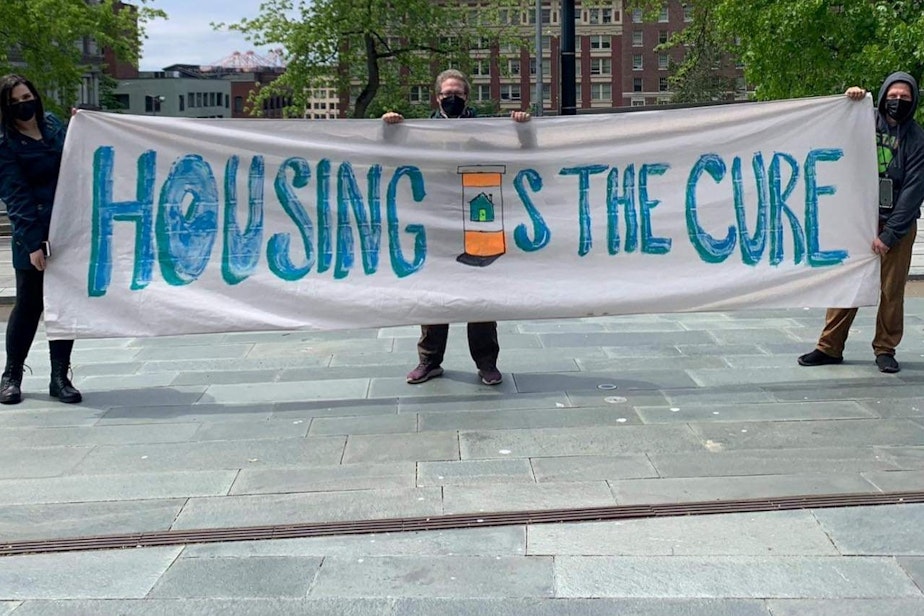Social housing effort stakes step forward in Seattle

A group behind a proposal to create "social housing" in Seattle has turned in nearly 30,0000 signatures to the King County Elections Office this week.
House Our Neighbors is hoping the majority of those signatures will be validated, meaning Seattle will likely be voting on social housing on the November ballot.
RELATED: Is social housing the answer to Seattle’s affordable housing woes?
The social housing model has been described as one where publicly owned housing is run by a renter's governing board, which then determines who can live in the units. But unlike other public housing, social housing does not place heavy income limitations on its residents. People earning 0-120% of the area median income will be considered. Higher-earning residents pay higher rents. Those funds will be used to offset lower-tiered rents in the system.
I-135 aims to accomplish this by creating a public developer in Seattle City Hall. It would build new housing on surplus city land.
Supporters say something like this is needed to keep housing affordable in the city especially for low-income communities and communities of color.
The Housing Development Consortium (a 30-year-old affordable housing advocacy group in King County) has come out against the measure, saying it "distracts funds and energy away from what our community should be focusing on – scaling up affordable housing for low-income people."
In a blog post, the HDC points out the I-135 does not propose any source of funding and has no taxing authority on its own. It is concerned that it could eventually draw away from existing affordable housing funding for the area. It argues, "this Initiative would divert scarce public resources toward the creation of a new bureaucracy and is a distraction from what should be our priority as a City—greatly increasing funding for affordable housing to meet the scale of the need."
This debate is something that the Today So Far newsletter saw coming. Today So Far pressed Tiffany McCoy about the funding issue back in April. McCoy is the co-chair of the I-135 campaign, and is the advocacy chair of Real Change.
“Funding will come from the city budget, or state budget,” McCoy said. “But the first day the public developer comes into existence, it has the ability to apply for grants or funds at all levels of government, and/or private philanthropy.”
In a roundabout way, funding will come from taxes. It will be up to city leaders to use existing funds, or find new funds (potentially new taxes) to pay for it. That should be an interesting debate in itself given that Seattle is currently facing a $117 million shortfall in its 2023 budget.

